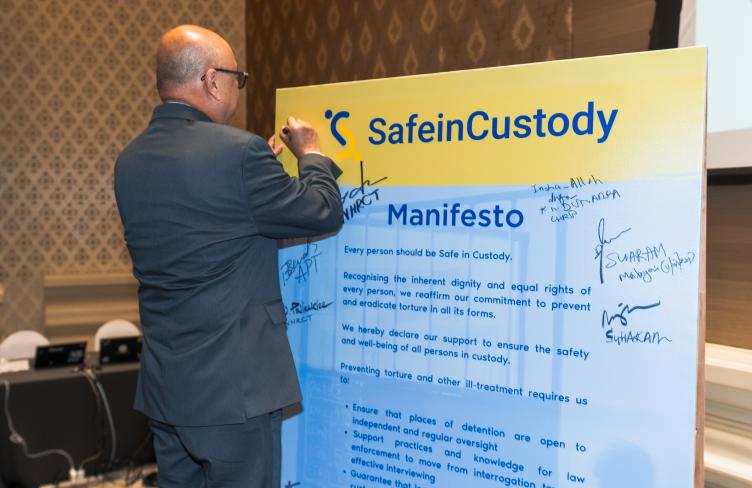
The APT, in collaboration with its Brazilian partners, has launched an online platform – Observa Custódia – that provides detailed information on the conduct of custody hearings in all 27 states of Brazil.
Face-to-face custody hearings – when a person is brought before a judge within 24 hours of being detained – are a vital tool for identifying whether a person has experienced torture or violence on arrest or in the first hours of custody.
In response to the COVID-19 pandemic, custody hearings were initially suspended across Brazil and then authorised by the National Council of Justice to be held remotely via videoconference.
I would like to congratulate the APT and the other partners for the launch of the platform … and express our intention to deepen this work, with research that encompasses other indicators and is expanded beyond the state capitals.
Florisvaldo Fiorentino, Head of the National Council of General Public Defenders
Speaking at the launch of the Observa Custódia platform, APT Deputy Secretary General Audrey Olivier Muralt said the decision to hold custody hearings remotely was of deep concern as it weakened the ability of magistrates to detect and respond to allegations of torture and ill-treatment.
“At that moment, the APT and many groups here today sought to influence this agenda,” Ms Muralt said. “However, we realised there was no up-to-date, public and easily accessible source of information on how and if custody hearings were being held around the country.”
“The need to collect and present up-to-date data was the driving force behind the decision to establish the Observa Custódia platform,” Ms Muralt added. “We know that data and information are key elements for effective mobilisation and advocacy by civil society to promote necessary change in the practices of the justice system.”
In partnership with the National Council of General Public Defenders (CONDEGE), information on custody hearings was collected and shared by Public Defenders in each state.
On the Observa Custódia platform, this information is divided into 10 categories, including access to medical examination, legal defense, contact with family and treatment of detainees.
Visitors can drill down further in the information to see, for example, which states allow family members access to hearings, if private communication between detainees and their defendants is respected, or whether the hearing is held face-to-face or online.
Data can be viewed on a national level, a regional level or with a focus on a particular capital.
Janine Carvalho, Executive Secretariat of Rede Justiça Criminal, described the establishment of the Observa Custódia platform as “a dream come true”.
“Access to this data is important to improve our performance and also as evidence that our concerns are based on scientific data, not personal perceptions. Without this data, there is no serious, long-lasting and transparent public policy,” Ms Carvalho said.
“We will add new data to the platform on a regular basis and will continue to improve it and make it more sophisticated,” Ms Muralt added. “Our goal is to use this data to inform policy and practice so that key safeguards are respected for all persons deprived of liberty.”
The APT would like to acknowledge the support of the Tinker Foundation to develop the Observa Custódia platform, as well as the contributions provided by our national partners: CONDEGE, IDDD, ISER, Criminal Justice Network, Network of Communities and Movements against Violence, Conectas, Pro Bono Institute, Asa Branca Criminologia, Gajop, Justiça Global and public defenders across the country.
Discover the platform by following this link.


